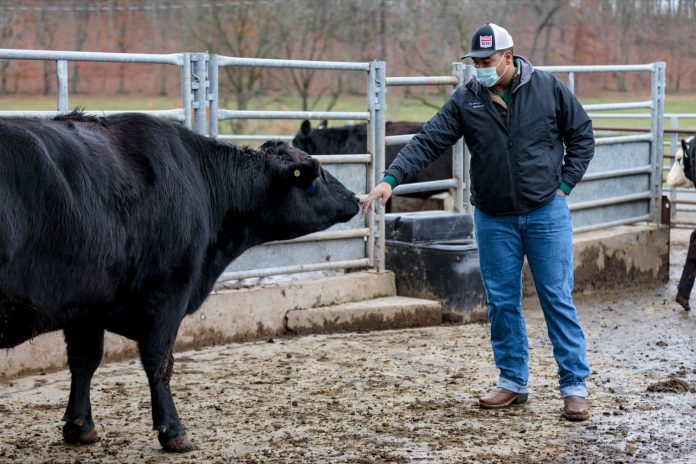Agriculture Secretary Russell Redding announced the availability of $500,000 through the Pennsylvania Farm Bill’s Ag and Youth Grant Program to fund projects such as ag education and workforce development programs, seminars and field trips, agricultural safety training, capital projects, or equipment purchases that will help build a strong future workforce for Pennsylvania’s leading industry.
“We predict a shortfall in the agriculture workforce in the coming years as older farmers retire and new, more technological jobs are created,” Redding said. “The remedy is education and awareness. By sparking early interest in agriculture through hands-on programs, we cultivate future industry leaders. Agriculture offers a variety of satisfying, family-sustaining jobs. These grants will expose youth to all that agriculture has to offer and will lead to a strong ag workforce for tomorrow.”
A total of $500,000 is available for two grant types that can be awarded under the program:
– Direct, non-matching reimbursement grants of up to $7,500 to defray costs of an eligible project other than a capital project
– Matching reimbursement grants of up to $25,000 to defray the costs of an eligible capital project or equipment purchase, where the grant covers no more than 50 percent of the project cost
Those interested in the Ag and Youth Grant Program can find a link to apply and more information at agriculture.pa.gov/pafarmbill. The application link will become available Jan. 25 and will be accepted through March 5, at 5 p.m.
According to Redding, great careers start with early interest, and early interest can be spurred through strong ag education programs. These can be created or boosted through the Pennsylvania Farm Bill’s Ag and Youth Grant Program opening soon.
“The sooner you can plant that seed of interest about what the food and agriculture system is, the better. The jobs in agriculture are found everywhere across the country,” Redding said. “It’s key to have a school that inspires you and teachers that inspire you, who can articulate a vision for learning and opportunity. I see that converging within our ag science programs around Pennsylvania.”
Education for food production careers continues into college.
Darian Poles, a junior agriculture student at Delaware Valley University, has career ambitions involving beef cattle.
“When I graduate, I hope to work on a big cattle ranch,” Poles said. “Beef cattle are my passion. My goal is to work around the United States and figure out where I fit best. The goal after college is to get more experience, to work and get some dirt on my hands, and eventually become a cattle manager at a ranch.”
Ultimately, Poles would like to have his own cattle ranch.
The next generation is eager to take its place, and expanding agriculture education can help them reach their goals and assure a sustainable food system.


